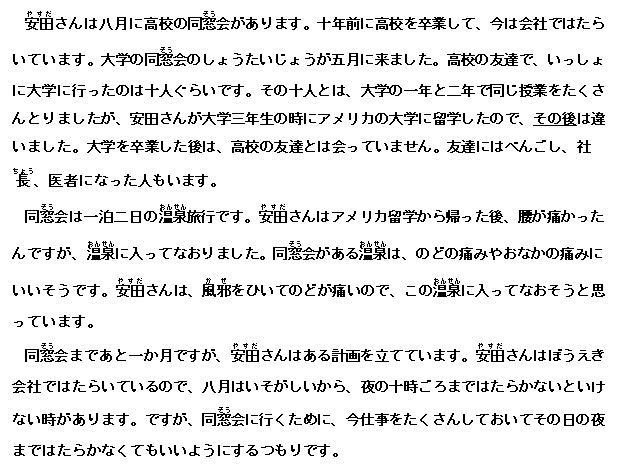Yasuda-san

a. is a company president.
b. is a doctor.
c. works for a trading company.
d. is a lawyer.
c. works for a trading company.
You might also like to view...
INSTRUCTIONS: Each of the following sentences has four underlined words. Choose the word (A, B, C, or D) that is spelled incorrectly.__________ My beutiful[A] niece[B] works at a clothing store and tries[C] to please her customers and not embarrass[D] them.
What will be an ideal response?
Choose the word that doesn’t belong.
a.???? b.?? c.??? d.??
At one point the author describes how some detectives in the county jail
_____ a. kicked some poor drunk to his knees. _____ b. spit on a prostitute dying of AIDS. _____ c. called a homeless woman “damned disgusting.” _____ d. burned a runaway kid with a cigarette.
Human societies tend to come together precisely where water exists, of course. In places where it's plentiful, water seems less like a substance than an environment: People drink it, cook in it, bathe in it, wash wastes away in it, harness it for power, swim in it. Some 71 percent of Earth's surface is ocean water, and human bodies are about 66 percent water by weight, so that if we have, say, a
128-pound person, about 85 pounds of him or her will be water. If Earth amounts to a watery environment flecked by the landmasses we call continents, the human body amounts to a watery mass with significant proportions of other materials immersed in it. The purpose of the paragraph is a. to inform the reader how much water the human body contains. b. to compare the amount of water in the human body to that of the Earth's surface. c. to evaluate how important water is to human societies. The tone of the paragraph is a. objective. b. subjective. c. judgmental.